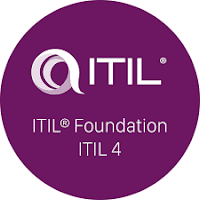Introduction:
Embarking on a journey to obtain ITIL V4 Foundation certification is a strategic move for professionals in the realm of IT service management. As the cornerstone of ITIL certification levels, the Foundation exam equips individuals with fundamental knowledge and principles that are indispensable in today's dynamic IT landscape. In this blog, we'll delve into the essential topics you need to master to excel in the ITIL V4 Foundation exam.
Understanding the ITIL Framework:
Familiarize yourself with the core concepts of the ITIL framework, including its evolution, key principles, and benefits.
Gain insights into the structure of ITIL V4, which comprises the Service Value System (SVS), the Service Value Chain, and the four dimensions of service management.
Service Management:
Explore the fundamentals of service management, including its definition, objectives, and importance in driving business value.
Grasp the concepts of stakeholders, value co-creation, and the Service Relationship Model, which underpin effective service management practices.
Service Value System (SVS):
Dive into the components of the SVS, such as the Service Value Chain, the Guiding Principles, Governance, Continual Improvement, and the Practices.
Understand how these components interact to facilitate the creation, delivery, and continual improvement of services that meet customer needs and organizational goals.
Service Value Chain:
Delve into the activities within the Service Value Chain, namely Plan, Improve, Engage, Design & Transition, Obtain/Build, and Deliver & Support.
Learn how each stage contributes to the value creation process and enables organizations to respond effectively to changing market demands and customer expectations.
ITIL Practices:
Explore the ITIL practices, which encompass a set of organizational resources designed to achieve specific objectives.
Gain proficiency in key practices such as Incident Management, Problem Management, Change Control, Service Level Management, and Continual Improvement.
Service Lifecycle:
Acquaint yourself with the ITIL service lifecycle stages: Service Strategy, Service Design, Service Transition, Service Operation, and Continual Service Improvement.
Understand the purpose and activities associated with each stage, along with their interdependencies and contribution to overall service delivery excellence.
Continual Service Improvement (CSI):
Appreciate the significance of CSI in fostering a culture of ongoing improvement and innovation within organizations.
Learn about the CSI approach, including the Plan-Do-Check-Act (PDCA) cycle, Key Performance Indicators (KPIs), and the role of metrics in measuring service performance and maturity.
Conclusion:
Mastering the topics outlined above lays a solid foundation for success in the ITIL V4 Foundation exam and, more importantly, for driving tangible improvements in service management practices within your organization. By understanding the core principles, frameworks, and practices of ITIL V4, you'll be well-equipped to navigate the complexities of modern IT environments and deliver value-driven services that meet the evolving needs of your customers and stakeholders. So, roll up your sleeves, dive into the study materials, and embark on your journey to ITIL mastery!
Topics for ITIL V4 exam:
Service Management:
- Services and Products
- Service Management
- Value
- Organizations
- Service consumer roles
- Stakeholders
- Service Offering
- Service Relationship
- Service Provisioning & Service Consumption
- Service Relationship Model
- Outcomes, Costs and Risks
- Service Facilitate Outcomes
- Utility and Warranty
4-Dimensional Service Management:
- Dimension 1: Organizations & People
- Dimension 2: Information & Technology
- Dimension 3: Partners & Suppliers
- Dimension 4: Value Streams & Processes
Service Value System:
- Inputs of the SVS
- Outcome of the SVS
- Components of the SVS
- Guiding Principle
- Governance
- Service Value Chain
- Practices
- Continual Improvement
1. Guiding Principle
2. Governance
3. Service Value Chain:
- Value Chain Interactions with Practices
- Service Value Chain Activities
- Value Streams and the Service Value Chain
4. Continual Improvement
5. Categories of Practices



